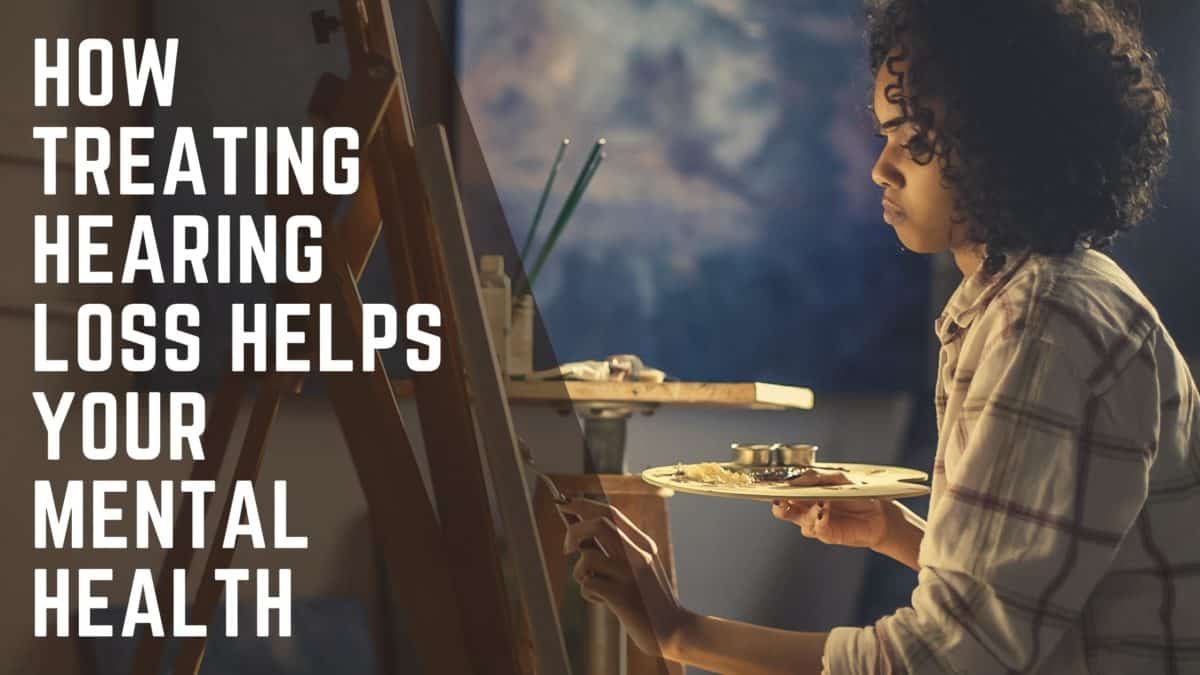- Volunteering for Hearing Health Causes - May 27, 2025
- Questions to Ask During Your Hearing Health Appointment - May 16, 2025
- Exploring Alternative Therapies for Hearing Loss - May 6, 2025
The way we talk about mental health has changed in recent years. The past stigma seems to be fading, and people are more willing to get help for their mental health needs. Prominent celebrities, athletes, and politicians have opened up about their own experiences with anxiety, depression, and other mental health issues.
Why the sudden focus on mental health? The answer lies partly because more people are now living with mental health conditions. Since 1990, people living with depression and anxiety have increased by nearly 50%. The World Health Organization (WHO) estimates that around 450 million people worldwide are affected by these two conditions.
Did you know that your hearing loss could affect your mental health? Read on to find out more.
Hearing loss and mental health
Although hearing loss is commonly associated with aging, it affects people of all ages in vast numbers. And with hearing loss comes a multitude of mental health risks, especially if the hearing loss is left untreated. In a 2014 study, it was found that hearing loss increases the risk of depression in adults of all ages but is most problematic in 18-to 69-year olds.
In a separate study carried out in Italy, it was revealed that working adults from 35 to 55 years old with untreated mild to moderate hearing loss tended to experience more depression, anxiety, and interpersonal struggles than those without hearing issues.
The link between untreated hearing loss and depression is troubling, but the good news is that hearing aids have been proven to provide relief. Research has shown that adverse mental health symptoms are alleviated in those who take steps to treat their hearing loss with hearing aids.
Five ways that treating your hearing loss will improve your mental health
Hearing those lost frequencies again is wonderful, but there’s more to it. Here are just a few reasons why treating hearing loss helps to safeguard one’s happiness and overall well-being.
Keeps You Sharp
The research is detailed: when hearing loss goes unaddressed, a person’s relationships and mental health suffer. Hearing loss is often connected with other physical and mental health issues, such as reduced safety and mobility, social withdrawal, psychological pain, and an increased risk of cognitive decline and dementia. When it comes to preserving your cognitive health, treating hearing loss is one of the most important things you can do.
Mood stabilizer
Untreated hearing loss, especially severe loss, can result in several negative feelings and a generally depressed mental state. People with untreated severe hearing loss can often feel frustrated, anxious, angry, stressed, exhausted, and isolated. Fortunately, research shows that once a person takes steps to treat their hearing loss with hearing aids, their mental health rebounds dramatically. Many people report more excellent emotional stability, a better sense of self-worth, safety, independence, and an easier time engaging socially. In short, they see a marked improvement in their overall quality of life.
Confidence booster
A lack of confidence can erode a person’s ability to do the things they once enjoyed, be effective at work, maintain relationships, and feel content in their lives. While the communication difficulties that stem from untreated hearing loss can destroy a person’s confidence, hearing aids can go a long way toward rebuilding it. Research has proven that many people feel less self-critical and more assured in their daily interactions when using hearing aids to treat their hearing loss–even those whose hearing loss was mild.
Restores communication
Friendships, family relationships, romantic partnerships, interpersonal relationships at work–all depend on good communication. Untreated hearing loss can cause tensions and walls between the hard of hearing person and the most important people in their lives, leading to increased isolation and social withdrawal. The good news is that treating hearing loss has been proven to restore communication channels and rebuild personal connections. In a Better Hearing Institute study, almost 7 out of 10 participants felt their ability to communicate in most situations had improved. Over half said that their relationships at home, in social settings, and at work had been enriched.
The hearing latest technology!
The technological advances of recent years have revolutionized modern hearing devices, making them more comfortable, discreet, and multi-functional than they have ever been. Many in-the-canal devices are nearly invisible, and some are even rechargeable. Hearing aids have also improved at honing in on speech, reducing background noise, and allowing for more personalization options to suit your needs in different acoustic environments.
There’s no reason to live with untreated hearing loss! If you’ve experienced changes in your hearing, contact us to schedule a consultation.

